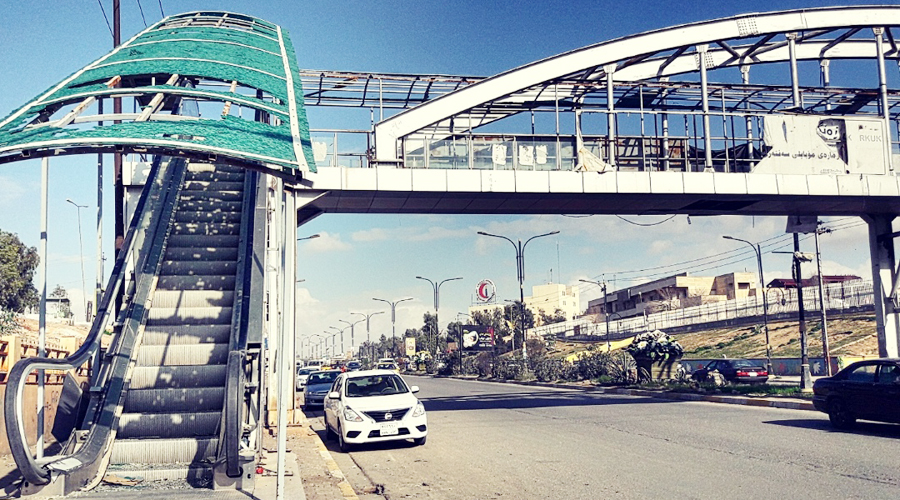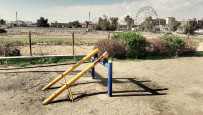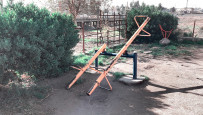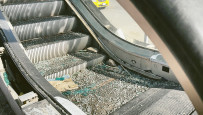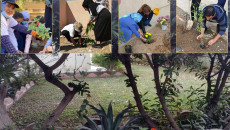Escalators, seats in public parks and other services in Kirkuk are subjected to tampering and distortion by unknown people, which has become a concern for citizens' comfort.
This behavior affected a large part of public and amusement parks while the municipality of Kirkuk is complaining about the lack of budget for maintenance.
The breakdown of one of the escalators created a problem for Amina Hussein, 64, and many others who need to climb the electric escalator to reach Azadi Teaching Hospital, located across the street, in order to receive treatment. Amina’s case requires medical checkup by her specialist doctor every week.
The escalator was built on a crowded 2-way street to protect the lives of passersby, but Amina and dozens of others are now deprived of this service because unknown persons have destroyed it.
The street is too crowded and the escalator does not work
"I suffer from pain in the vertebrae in the back and I have to go to the doctor weekly. When I get to the hospital I have to stand for a long time until I have the opportunity to cross the street... The street is very crowded and the escalator does not work," says Amna Hussein.
Sometimes taxi drivers and policemen help the elderly to cross that crowded street.
That escalator, which dates back to the period of the former governor of Kirkuk, Najm al-Din Karim, was broken. It is just one example among dozens of other examples of damage to service facilities in Kirkuk, such as breaking benches in public parks garbage containers, and games for children in amusement parks.
The oil-rich city of Kirkuk, pumps 2-3 million barrels of crude oil per month generating hundreds of million Dollars for national revenues which 90% rely on oil marketing while the province suffers from proper basic public services in all sectors, in particular education and healthcare.
Kirkuk, Iraq’s second largest reserves, located 238 kilometers north of Baghdad, is an ethnically mixed province for 1,7 million Kurds, Arabs, and Turkmens. It has long been at the center of disputes between Baghdad and the Erbil.
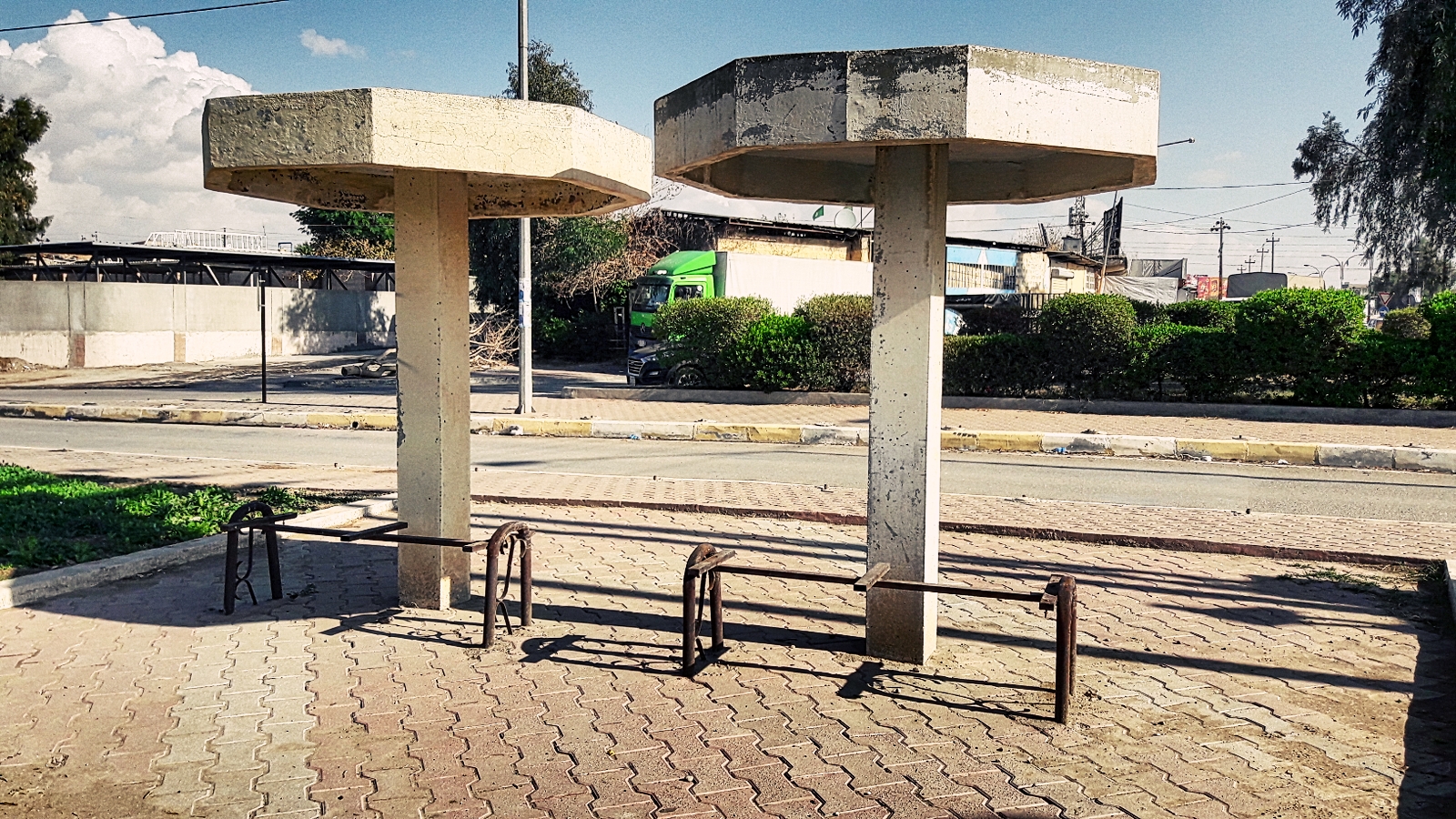
Kirkuk, December 2021- Broken benches in a city park. KirkukNow
Diler Aziz, 33 years old, who was sitting on the grass in a park near Kirkuk Citadel, told KirkukNow, "I want to take a rest here, but as you can see all the chairs are broken so I had to sit on the ground."
"Some people are accountable for shortages on sidewalks, streets, and public places not the government because these services were provided by the government and it is the citizens' duty to preserve it yet unfortunately the level of awareness of some people is low."
In general, services in parks, gardens and other public places, as seen by Kirkuk Now correspondent, are in a poor and dire condition.
Local authorities are aware of the damages yet incapable to restore it regularly due to lack of sufficient budget.
A source in the Kirkuk municipality media department said lately they have conducted a survey to determine the deficiencies and malfunctions in the services available in parks, sidewalks and streets, and set out maintenance by the projects department in the municipality, “but the existing budget is insufficient, and the Iraqi government does not allocate the required budget to address defects and deficiencies."
"In some neighborhoods, residents donated benches and trash cans in public parks, and we commend that."

